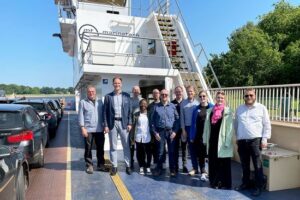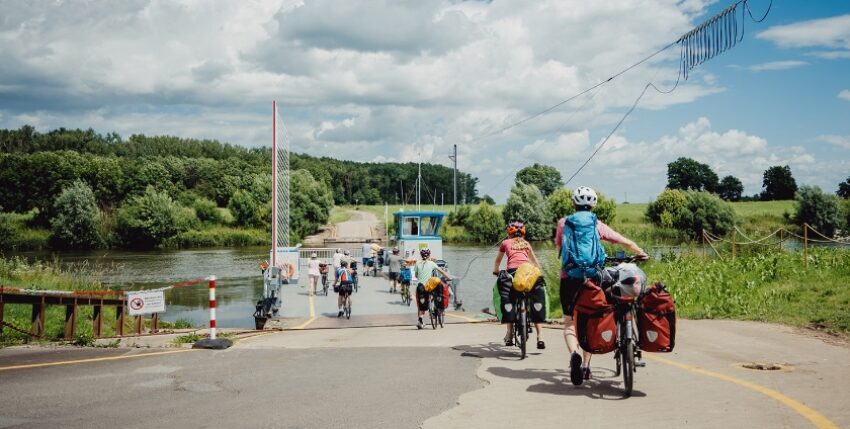Eco-Crossing: Intelligent assistance for climate-friendly ferry connections
 Elsfleth, 2 July 2025 - Innovation meets everyday life: every day, numerous people commute between Farge and Berne on the Weser ferry. The Eco-Crossing project aims to make this everyday connection not only reliable, but also significantly more climate-friendly. The central question is: does a ferry always have to take the same route - even if wind and current conditions are constantly changing? The answer is provided by a learning assistance system that recommends the most efficient route in real time - based on current environmental and ship parameters. The goal: a reduction in fuel consumption of up to 20 per cent and considerable annual cost savings. In this way, price stability and the attractiveness of ferry operations can be ensured despite rising energy costs.
Elsfleth, 2 July 2025 - Innovation meets everyday life: every day, numerous people commute between Farge and Berne on the Weser ferry. The Eco-Crossing project aims to make this everyday connection not only reliable, but also significantly more climate-friendly. The central question is: does a ferry always have to take the same route - even if wind and current conditions are constantly changing? The answer is provided by a learning assistance system that recommends the most efficient route in real time - based on current environmental and ship parameters. The goal: a reduction in fuel consumption of up to 20 per cent and considerable annual cost savings. In this way, price stability and the attractiveness of ferry operations can be ensured despite rising energy costs.
Data-based navigation as the key to sustainable mobility
Data-supported route decisions open up enormous potential, especially in tidal waters such as the Weser, Elbe and Wadden Sea. Eco-Crossing deliberately does not rely on full automation, but on a practical assistance system that is developed together with skippers. The integration is based on existing on-board sensors, supplemented by additional environmental measurement systems and artificial intelligence methods - economically retrofittable and practical - ideal for use in existing ferry fleets.
Pilot project on the Weser - potential for Europe
The practical test will take place on the Weser ferry "Farge". The results of the project are intended to serve as a blueprint for European ferry services: More than 300 ferry companies in Europe operate short-haul routes where such technology would be highly attractive not only ecologically but also economically.
The Maritime Cluster Northern Germany is supporting the project as an associated partner. Eco-Crossing is funded by the German Federal Environmental Foundation. The following partner organisations are working in the project consortium under the coordination of Jade University of Applied Sciences in collaboration with the German Research Centre for Artificial Intelligence's Marine Perception research unit:
- Ferries Bremen-Stedingen GmbH
- marinom GmbH
- Weser-Jade-North Sea Waterways and Shipping Authority







